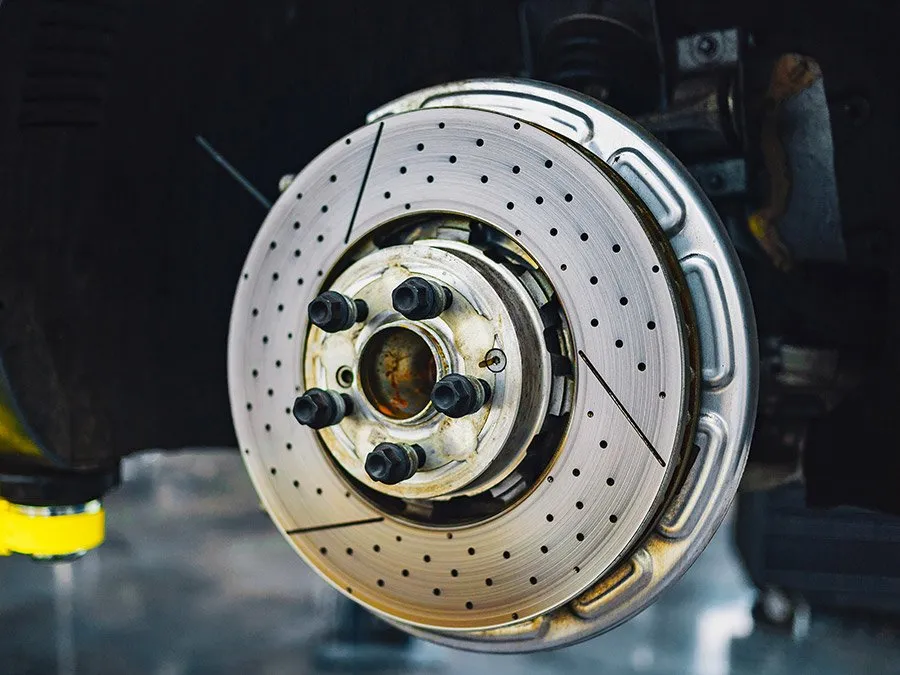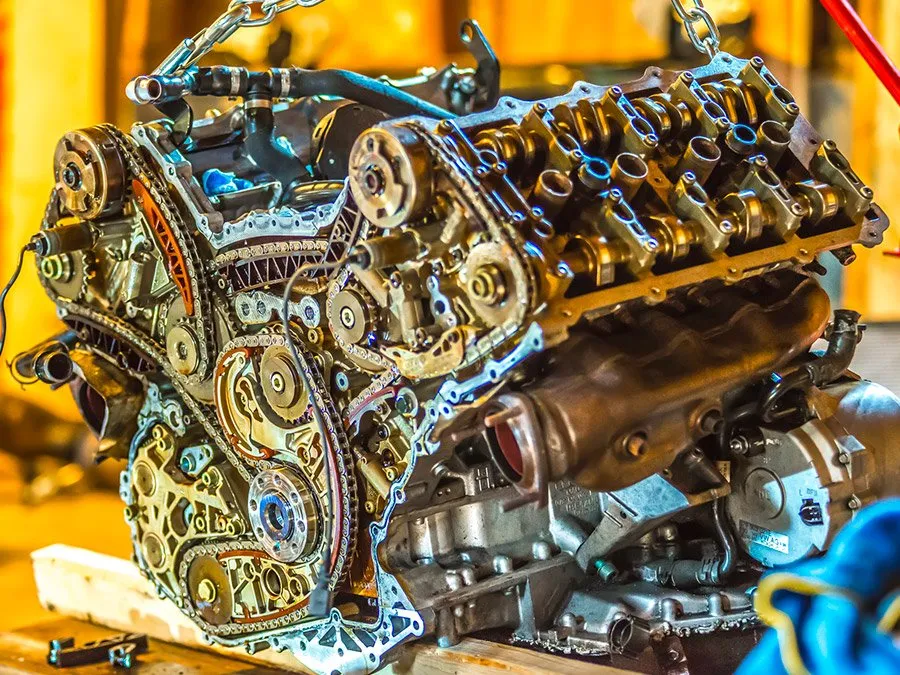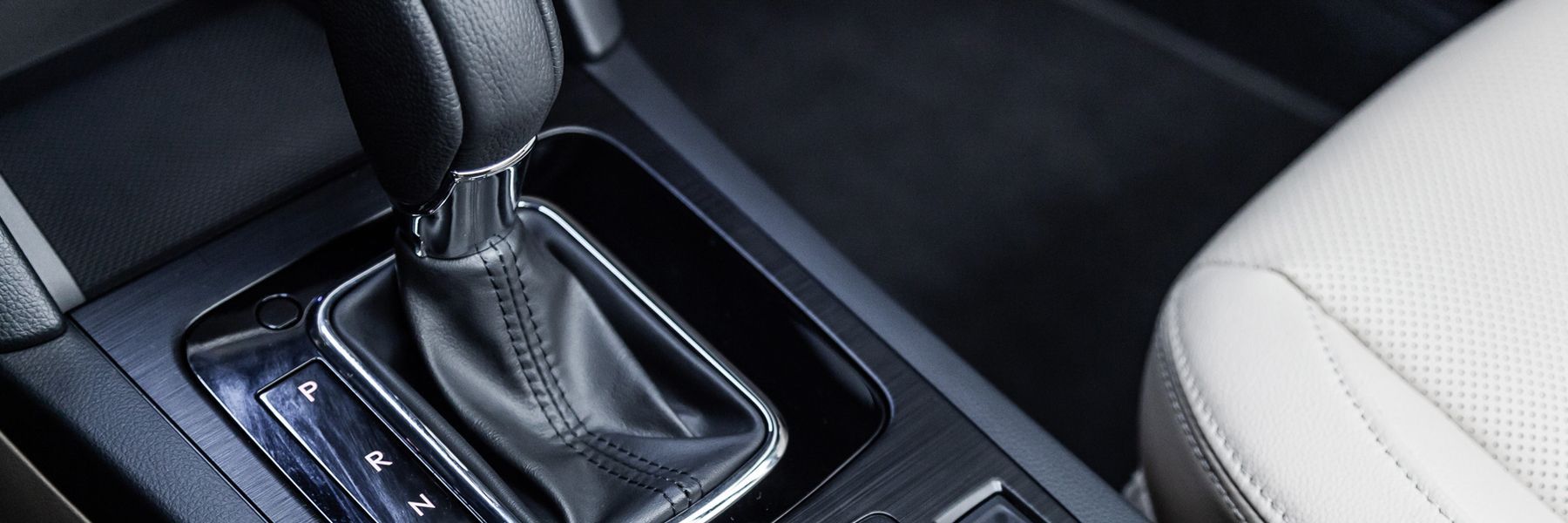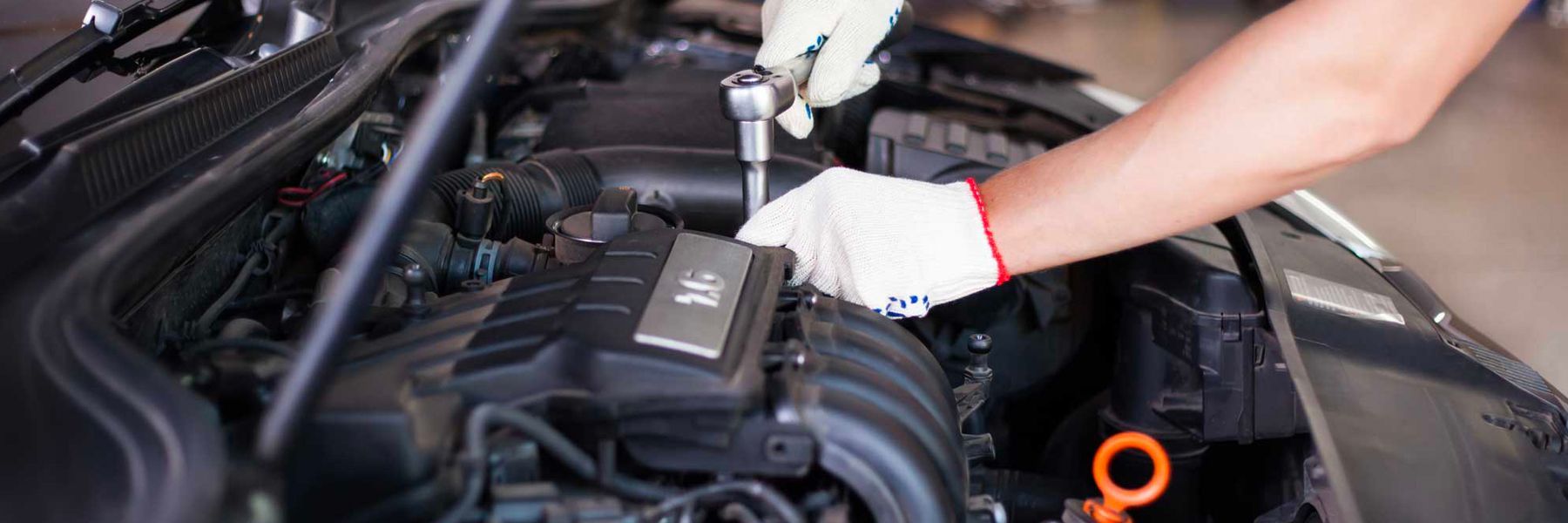Engine House Inc Blog

By Engine House Inc.
•
November 6, 2024
Properly functioning brakes are crucial for your safety and the safety of others on the road. So if you notice a symptom of brake trouble, it’s important to address it ASAP. At Engine House Inc., we provide expert brake repair in the greater Phoenix area. Here’s a look at five signs that it’s time for brake repair. Squeaking or Squealing Noises If you hear a high-pitched squeaking or squealing sound when you apply the brakes, it's a clear warning sign that your brake pads are worn out. Most brake pads come with built-in wear indicators that produce a sound when they need replacement. Ignoring this sound can lead to more significant damage, as worn-out pads can damage the rotors, leading to more costly repairs. Grinding Noises A grinding noise when you apply the brakes is a more serious issue than squeaking. This sound typically indicates that the brake pads have worn down completely, allowing the metal backing plate to make contact with the rotor. Continuing to drive with grinding brakes can cause serious damage to your brake rotors, requiring a more expensive repair. Vibrations When Braking If you feel vibrations or a pulsing sensation in the brake pedal when you apply the brakes, it could indicate warped brake rotors. Warped rotors can lead to uneven braking and decreased stopping power. Soft or Spongy Brake Pedal A soft or spongy brake pedal can indicate air in the brake lines or a leak in the brake fluid. When you press the brake pedal, it should feel firm and responsive. If it sinks to the floor or feels unusually soft, it's crucial to have your braking system inspected. Delaying repairs can lead to brake failure, putting you and others at risk. With a brake fluid leak, you should get towed to the shop instead of driving there. Warning Lights on Your Dashboard Most modern vehicles come equipped with a brake warning light on the dashboard. If this light illuminates, it can indicate a problem with the braking system such as low brake fluid or failing wheel speed sensors. If the warning light comes on, it’s essential to address it immediately and have your brakes checked by the mechanic. Brake Repair in Phoenix, AZ For auto repair in Phoenix and the surrounding area, contact Engine House Inc. at 602-265-2752 . Our local mechanics can expertly handle your car’s repair and maintenance needs. Feel free to give us a call to make an appointment!

By Engine House Inc.
•
October 2, 2024
When your engine starts to falter, it can signal deeper problems that may eventually require an engine rebuild. An engine rebuild can restore the power, efficiency, and reliability of your vehicle when normal repairs won't cut it. At Engine Haus Inc., we provide expert engine rebuilding in the greater Phoenix area. Here are four signs that it might be time to consider an engine rebuild. Excessive Smoke from the Exhaust If your car is producing more exhaust smoke than usual, it could be an indication of serious internal engine problems. The color of the smoke can give you a clue about what's wrong: Blue smoke points to burning oil, which could mean worn-out piston rings or valve seals. White smoke suggests a coolant leak, possibly caused by a blown head gasket or a cracked engine block. Loud Knocking Noises A knocking sound coming from the engine is never a good sign. Engine knocking is commonly caused by issues with the combustion process. In many cases, it can indicate worn bearings. This could potentially lead to engine damage that may require a rebuild to fully resolve. Loss of Power A noticeable loss of engine power, especially during acceleration or while climbing hills, is often a sign of internal engine wear. As the miles add up, components like the pistons, rings, and valves can degrade, reducing the engine’s ability to compress air and fuel properly. If your car no longer delivers the power it once did, an engine rebuild may be the most effective way to restore its performance. High Oil Consumption If you're constantly needing to top off your oil between oil changes, it could indicate that your engine is burning oil internally. This is often caused by worn-out piston rings or valves. A rebuild is often the best way to address widespread internal wear and prevent further damage. Engine Rebuilding In Phoenix, AZ For engine rebuilds in Phoenix and the surrounding area, contact Engine House Inc. at 602-265-2752 . With our local auto machine shop , we can expertly complete tasks such as engine rebuilding. Feel free to give us a call to schedule an appointment!

By Engine House Inc.
•
September 6, 2024
The transmission is one of the most important components of your vehicle, ensuring the right amount of power is transferred from the engine to the wheels. When it starts to malfunction, it can lead to escalating repair costs, so it’s always best to visit the shop at the first sign of trouble. At Engine House Inc., we provide expert transmission repair in the greater Phoenix area. Here are four common signs of transmission trouble that you shouldn’t ignore. Slipping Gears If your transmission is slipping between gears without any action on your part, this is a major red flag. You may feel the vehicle hesitate or jerk while accelerating or decelerating. In automatic transmissions, slipping can feel like a sudden loss of power, while manual transmissions may struggle to stay in gear. This can be caused by worn-out gears, low transmission fluid, or issues with the clutch. Unusual Noises Grinding, whining, or clunking noises coming from your transmission are often signs of trouble. A grinding noise is often associated with manual transmissions and could indicate a problem with the clutch. On the other hand, whining sounds in automatic transmissions could signal fluid issues or worn internal parts. Regardless of the specific sound, any strange noise should be inspected immediately. Delayed or Rough Shifting If your transmission takes longer than usual to shift or shifts roughly between gears, this is a sign that something isn't right. Delayed shifting can cause your engine to rev higher than normal before shifting, while rough shifting may feel like a hard jerk. These symptoms could be related to low transmission fluid, worn-out gears, or issues with the transmission control module. Fluid Leaks Transmission fluid is critical for lubricating the moving parts inside your transmission and preventing overheating. If you notice a red, sweet-smelling fluid leaking from your vehicle, there's a good chance it’s transmission fluid. Even a small leak can lead to significant transmission damage, as low fluid levels can cause overheating and wear on internal components. Transmission Repair in Phoenix, AZ For auto repair in Phoenix and the surrounding area, contact Engine House Inc. at 602-265-2752 . Our local mechanics can expertly handle your car’s repair and maintenance needs. Feel free to give us a call to make an appointment!

By Engine House Inc.
•
August 1, 2024
A cracked engine block is one of the most severe issues your vehicle can face. The engine block is the core of your car's engine, housing many of the critical components necessary for operation. When it cracks, it can lead to significant problems, often requiring costly repairs or even a complete engine replacement. At Engine House Inc., our local mechanics can expertly address cracked engine blocks. We provide top-quality engine repair and replacement in the greater Phoenix area. Here’s a look at five signs that might indicate a cracked engine block. Overheating One of the most common signs of a cracked engine block is persistent overheating. The engine block is crucial for maintaining the engine's temperature, as it houses the coolant passages that help regulate heat. When there’s a crack, coolant can leak out, reducing the system's ability to cool the engine efficiently. If you notice your engine temperature gauge frequently running hot, a cracked engine block could be the culprit. Coolant Leaks Coolant leaks are another indication of a cracked engine block. If you find puddles of coolant under your vehicle or notice a drop in coolant levels without any apparent leaks from hoses or the radiator, the coolant might be escaping through a crack in the engine block. Engine Oil Contamination A cracked engine block can allow coolant to mix with engine oil, leading to contamination. This mixture often results in a milky or frothy appearance in the oil. Contaminated oil can damage your engine, reducing its lubrication efficiency and causing increased friction and wear on engine components. Poor Engine Performance A compromised engine block can lead to a drop in engine performance. You might notice a loss of power, rough idling, misfires, or difficulty starting the engine. These symptoms occur because the crack can affect the engine's compression and overall ability to operate smoothly. White Exhaust Smoke White smoke from the exhaust can indicate a cracked engine block, as coolant leaking into the combustion chamber will burn off and produce white smoke. This is a major red flag that should be brought to the mechanic’s attention ASAP. Engine Repair & Replacement in Phoenix, AZ When you need engine repair in Phoenix and the surrounding area, contact Engine House Inc. at 602-265-2752 . Feel free to give us a call to schedule an appointment!
Schedule Appointment
Contact Us
Thank you for contacting us.
We will get back to you as soon as possible.
We will get back to you as soon as possible.
Oops, there was an error sending your message.
Please try again later.
Please try again later.
4015 N Black Canyon Hwy.
Phoenix, AZ 85015
Closed Saturday & Sunday
About Us
Locally owned and operated Engine House Inc. is a full service auto repair shop in Phoenix specializing in engine remanufacturing and machine shop services. For more than 47 years we have been helping drivers in our community care for their vehicles. In that time we have developed a reputation for providing quality, honest and fair priced car care services for most makes and models of cars and trucks, as well as marine engines.
© 2025
Engine House Inc

